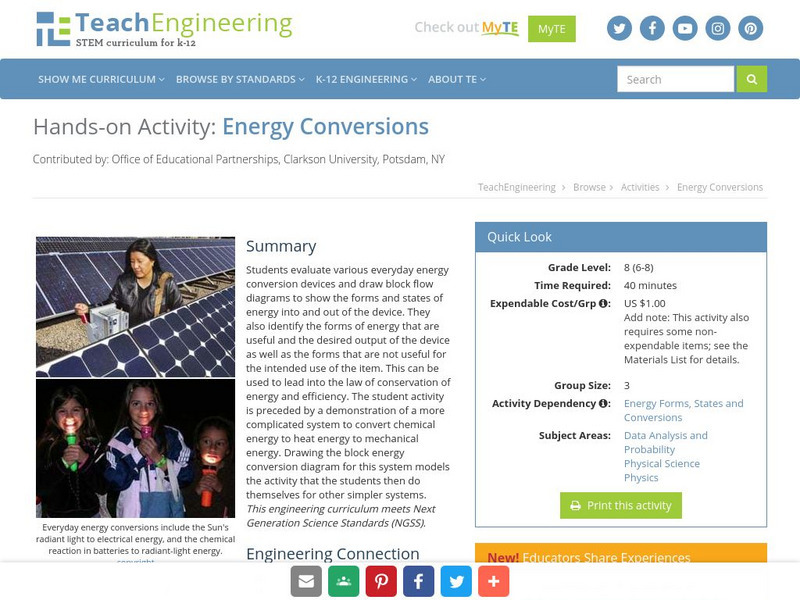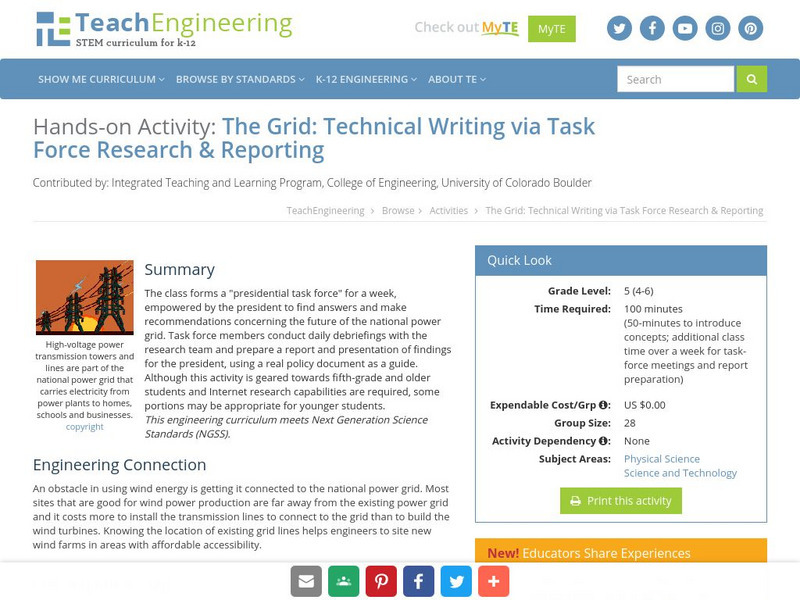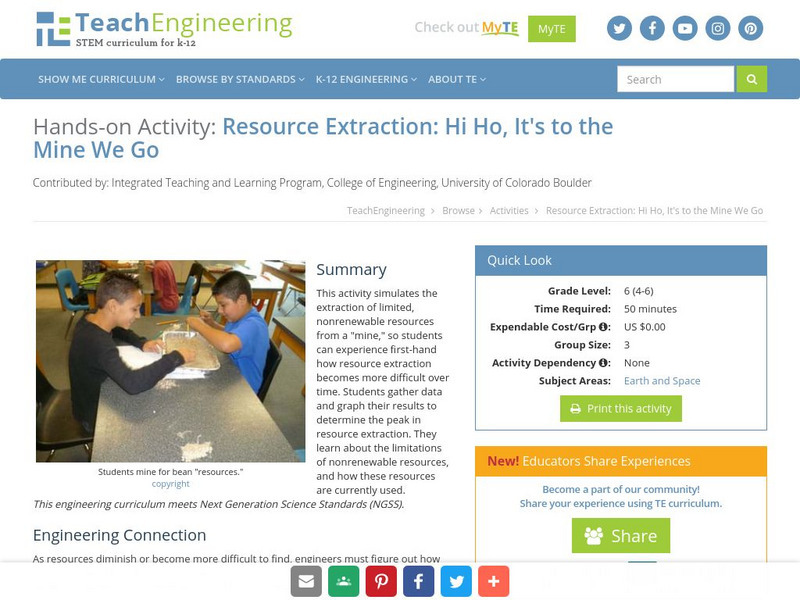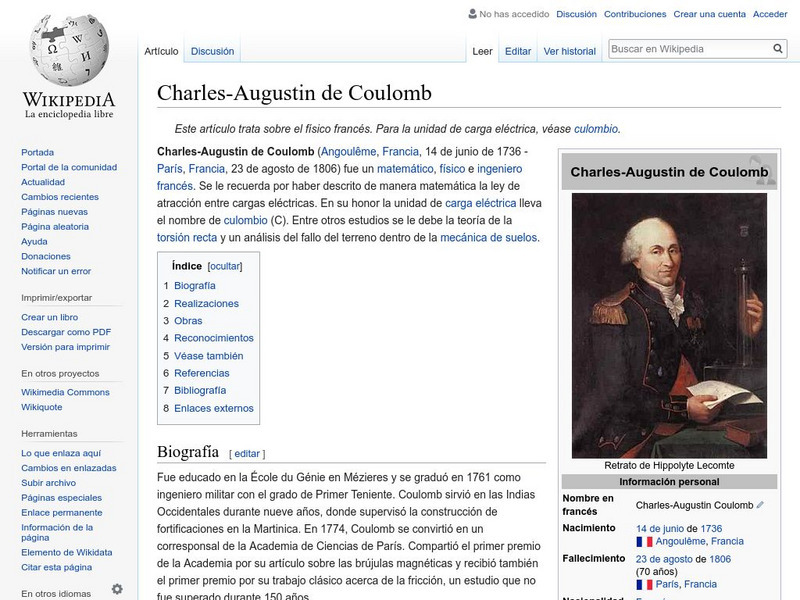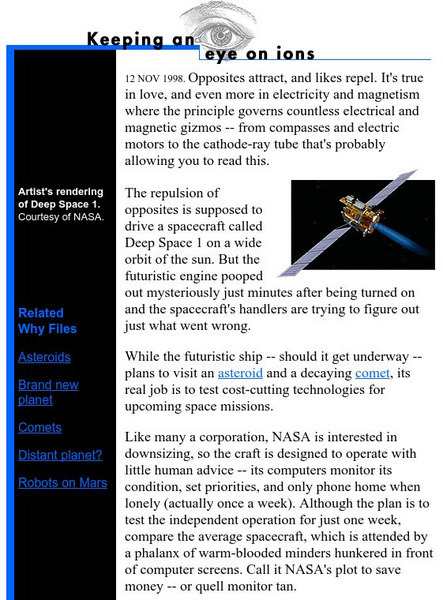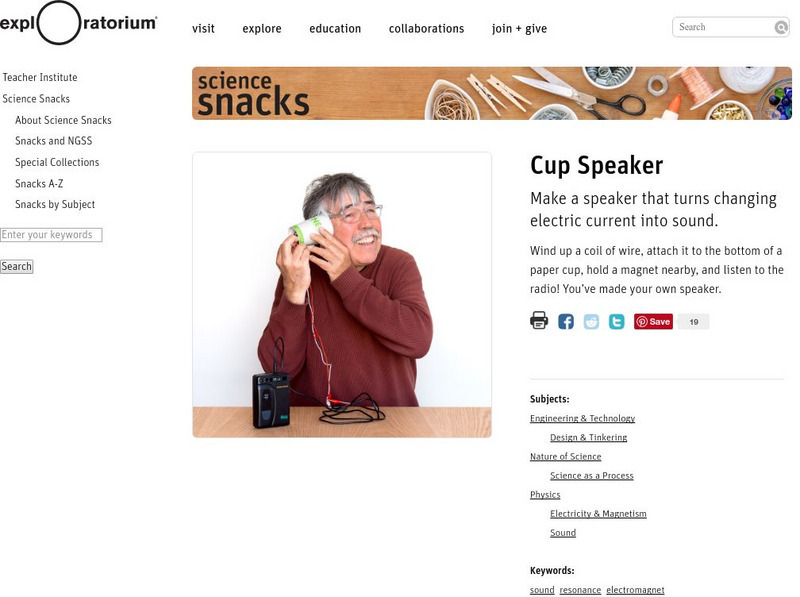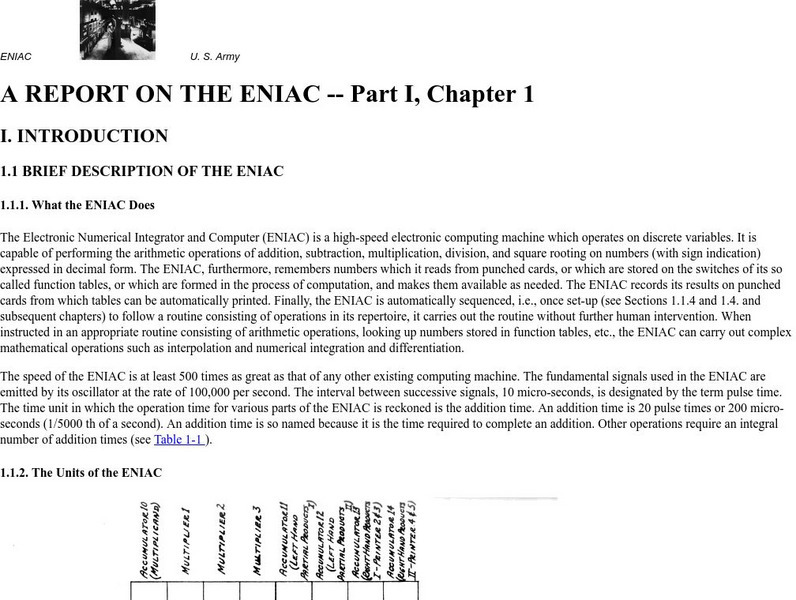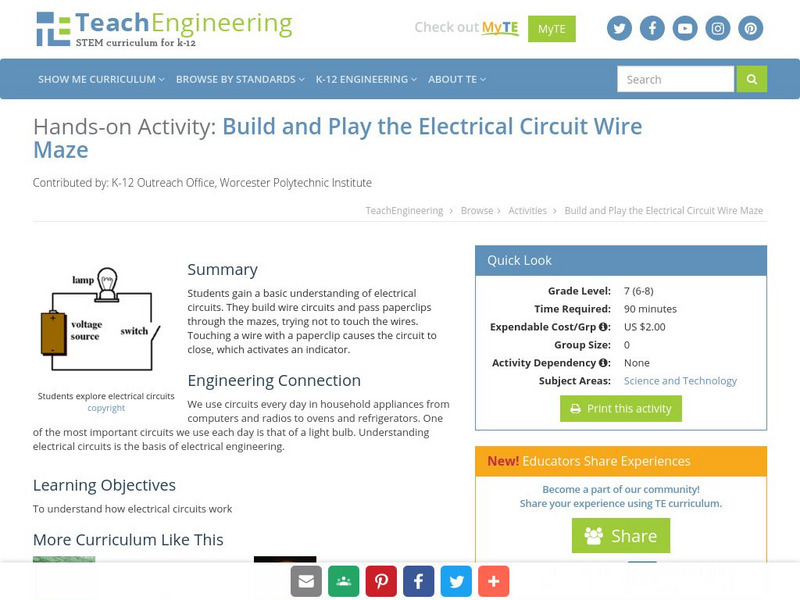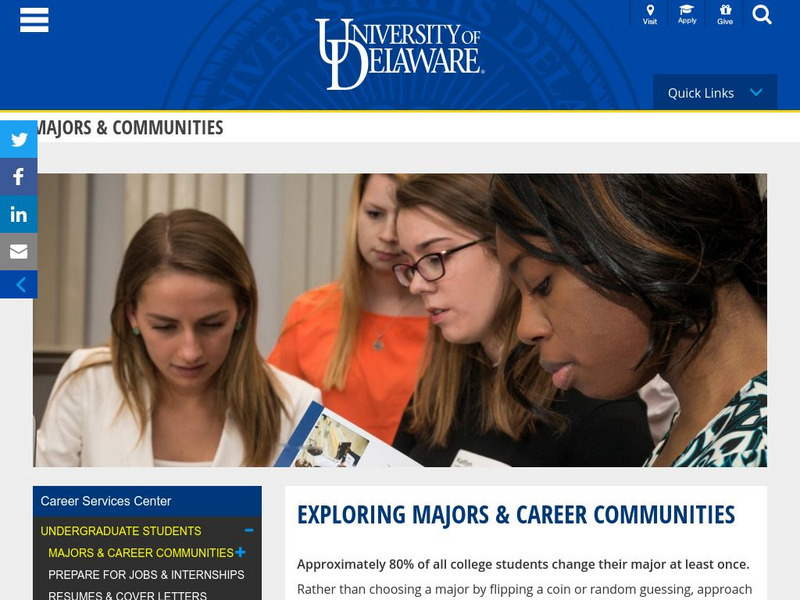TryEngineering
Ieee: Try Engineering: Build Your Own Robot Arm
Students design and build a working robotic arm from a set of everyday items with a goal of having the arm be able to pick up a Styrofoam cup. Working in teams of three or four students, the students explore effective teamwork skills...
TeachEngineering
Teach Engineering: Energy Conversions
Students evaluate various everyday energy conversion devices and draw block flow diagrams to show the forms and states of energy into and out of the device. They also identify the forms of energy that are useful and the desired output of...
Cosmo Learning
Cosmo Learning: Control Engineering
A collection of video lectures from an industrial control course taught at the National Programme on Technology Enhanced Learning. The course teaches basic characteristics of feedback control systems, frequency-response analysis, and...
University of Houston
University of Houston: Engines of Our Ingenuity: Franklin's Electricity
Some research puts Franklin's electrical work in the scientific and political context of his day. An interesting point of view, one not usually found in comments of Franklin and electrostatics. Done by a professor from University of...
Cosmo Learning
Cosmo Learning: Introduction to Microelectronics
A collection of video lectures from an introduction to microelectronics taught at the University of California, Berkeley. The course teaches digital integrated circuits by covering circuit analysis and microelectronic devices and...
Other
National Renewable Energy Laboratory: Junior Solar Car Competition
A design challenge through which students design and construct a solar-powered model car to compete in a road race. Students work in teams using the engineering design process to select the optimal gear ratio and components.
TeachEngineering
Teach Engineering: The Grid
The class forms a "Presidential Task Force" for a week, empowered by the president to find answers and make recommendations concerning the future of the national power grid. Task force members conduct daily debriefings with their...
Science Buddies
Science Buddies: Cold Room? Heat It Up With a Homemade Solar Air Heater
Humans need food, water, and warm shelter to survive. But a lot of humans depend on fossil fuels to supply gas and electricity to heat our homes. But burning fossil fuels to create energy is harmful to the environment. In this science...
TeachEngineering
Teach Engineering: The Good, the Bad and the Electromagnet
Using plastic straws, wire, batteries and iron nails, student teams build and test two versions of electromagnets-one with and one without an iron nail at its core. They test each magnet's ability pick up loose staples, which reveals the...
TeachEngineering
Teach Engineering: Concentrated Solar Power
Students learn how the total solar irradiance hitting a photovoltaic (PV) panel can be increased through the use of a concentrating device, such as a reflector or lens. This is the final lesson in the Photovoltaic Efficiency unit and is...
TeachEngineering
Teach Engineering: Hi Ho, Hi Ho, It's to the Mine We Go
This activity simulates the extraction of limited, nonrenewable resources from a "mine," so students can experience first-hand how resource extraction becomes more difficult over time. Students gather data and graph their results to...
Wikimedia
Wikipedia: Charles Augustin De Coulomb
Spanish-language site lets students discover the life and work of this physicist and engineer, who is known for his studies of electric charges.
University of Wisconsin
The Why Files: Keeping an Eye on Ions
Discusses the development of a new rocket engine that operates by the ion propulsion as opposed to gas propulsion. Well written and great graphics!
Discovery Education
Discovery Education: Build Your Own Perpetual Motion Machine [Pdf]
A lesson for learners to explore the conversion of energy from electrical energy to kinetic energy by constructing a homopolar motor. Also by constructing the motor, students can investigate magnetism, electricity, and RPM.
University of Houston
University of Houston: Engines of Our Ingenuity: Superconductors
Find out about the event and societal needs lead to the invention of superconductors.
Exploratorium
Exploratorium: Science Snacks: Cup Speaker
This activity will have students creating their own speaker with a paper cup, coil of wire, and magnet. The speaker operates by changing electric current into sound.
Other
Planet Ark: World Environmental News
Welcome to Planet Ark's daily Reuters World Environment News - the most comprehensive source of environmental news on the Net. To read previous news stories, please use the search engine below to find stories relating to any...
Cosmo Learning
Cosmo Learning: Power System Analysis
A collection of video lectures for a power system analysis e-learning course. Course covers topics like transmission line capacitance, transformer model, and power system stability.
Creative Science Centre
Creative Science Centre: Dc Converter and Electrical Storage for Shake a Gen
This simple device uses a few components to rectify the alternating current (AC) from the shake-a-gen, store it in a capacitor and convert it into a steady direct current (DC). The output can be used to run a low power device. It is also...
Other
U.s. Army: A Report on the Eniac
This site has a copy of the original report on the ENIAC high-speed electronic computing machine, from the Moore School of Electrical Engineering, University of Pennsylvania. Includes a detailed and technical description of how the...
TeachEngineering
Teach Engineering: Wire Maze
Students will build a wire circuit and pass a paperclip through the maze, trying not to touch the wire. Touching the wire with the paperclip will cause the circuit to close, which will activate the indicator.
Other
University of Delaware: Major Resource Kits
Major Resource Kits link academic majors to career alternatives by providing information on career paths, sample job titles, and a short bibliography of Career Resource Center materials available to students in a particular major....
TryEngineering
Try Engineering: Series and Parallel Circuits
The core of this lesson is simple circuits and the differences between parallel and series circuit design. Students perform experiments to test the differences between the two circuit designs using low voltage light bulbs.
NC State University
The Engineering Place: Battery Making
Using simple materials, students will learn how to create batteries, and about the relationship between voltage and current.



